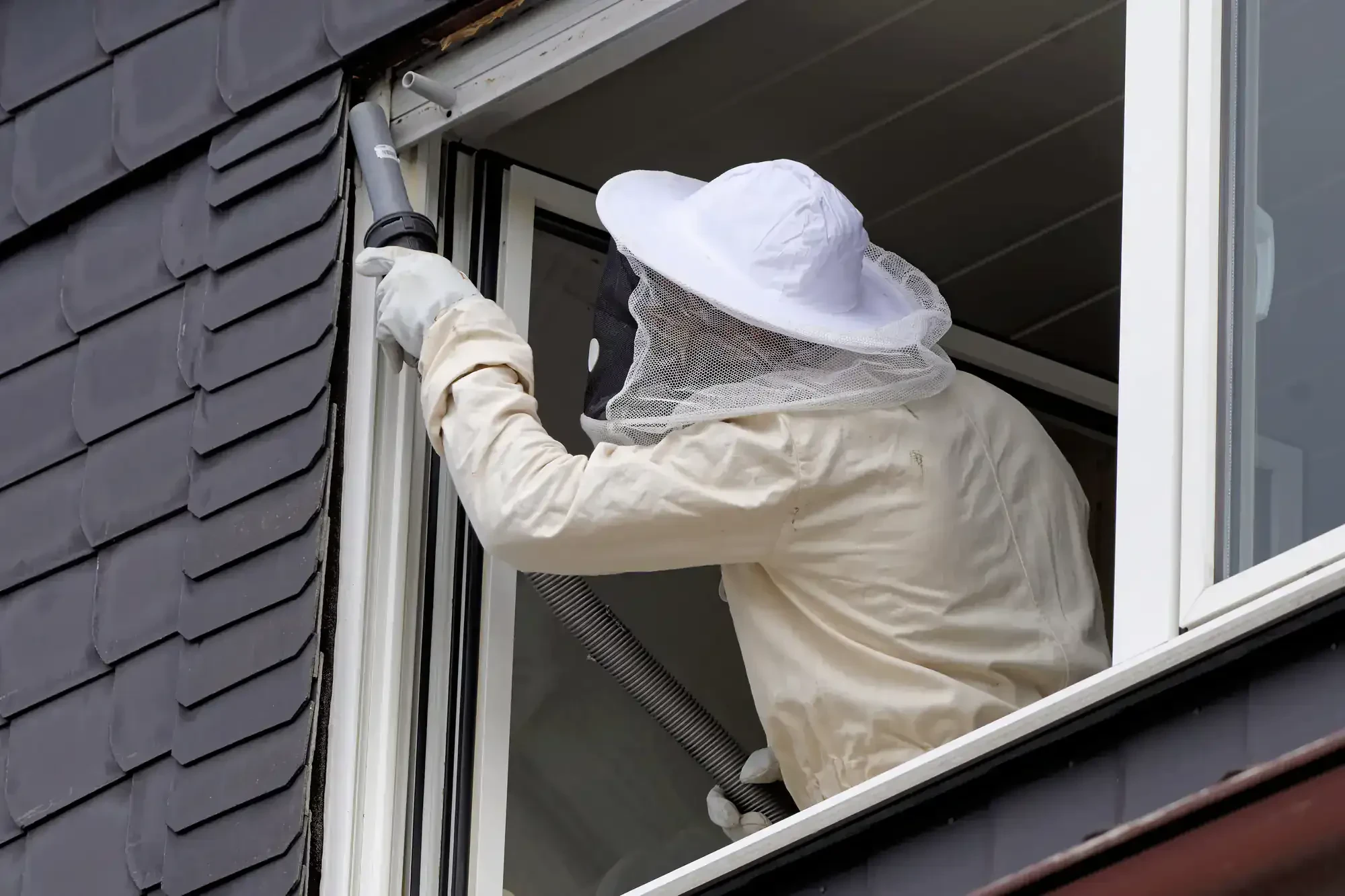
Hear from Our Customers
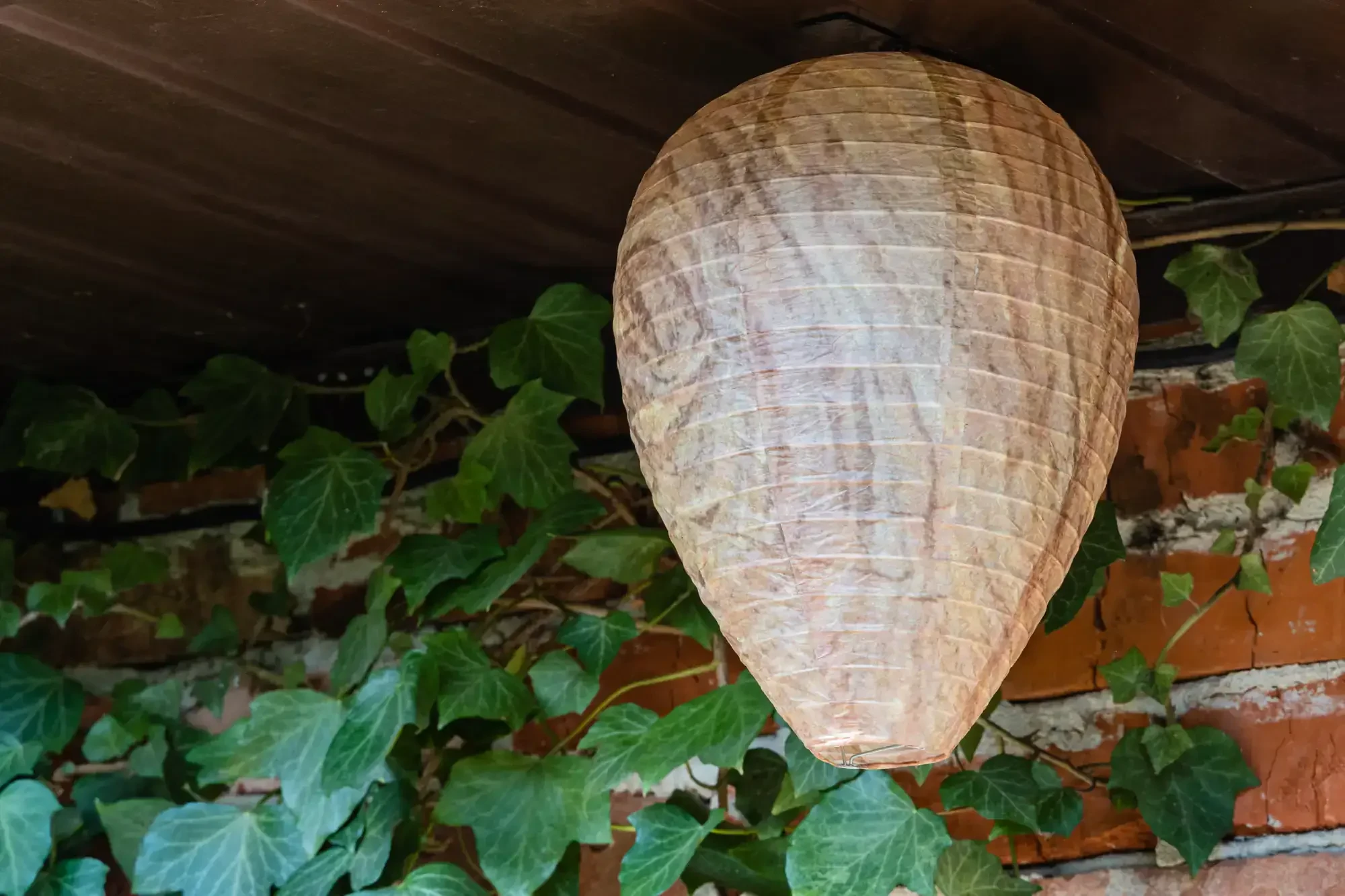
No more herding kids inside when wasps swarm your deck. No more cancelled barbecues because yellow jackets are attacking anyone near food. No more avoiding your own backyard during the few months Michigan weather actually lets you enjoy it.
Professional wasp nest removal eliminates the entire colony, not just the scouts you see flying around. Ground nests that house thousands of aggressive wasps get completely destroyed, not partially treated with store sprays that make survivors angrier.
You get your summer back. Your outdoor spaces become safe for family gatherings, kids playing, and actually using the yard you work so hard to maintain.
We’ve protected Fenton families since 2005. Roger leads our team with 26 years of experience dealing specifically with Michigan’s aggressive wasp species during our intense late-summer season.
You work with the same technician every visit. No explaining your wasp problem to different strangers each time. No wondering if today’s technician knows that ground nest location near your kids’ swing set.
We’ve earned recognition from Angie’s List and Home Advisor because we show up when promised, eliminate the problem completely, and don’t disappear when you need follow-up service.
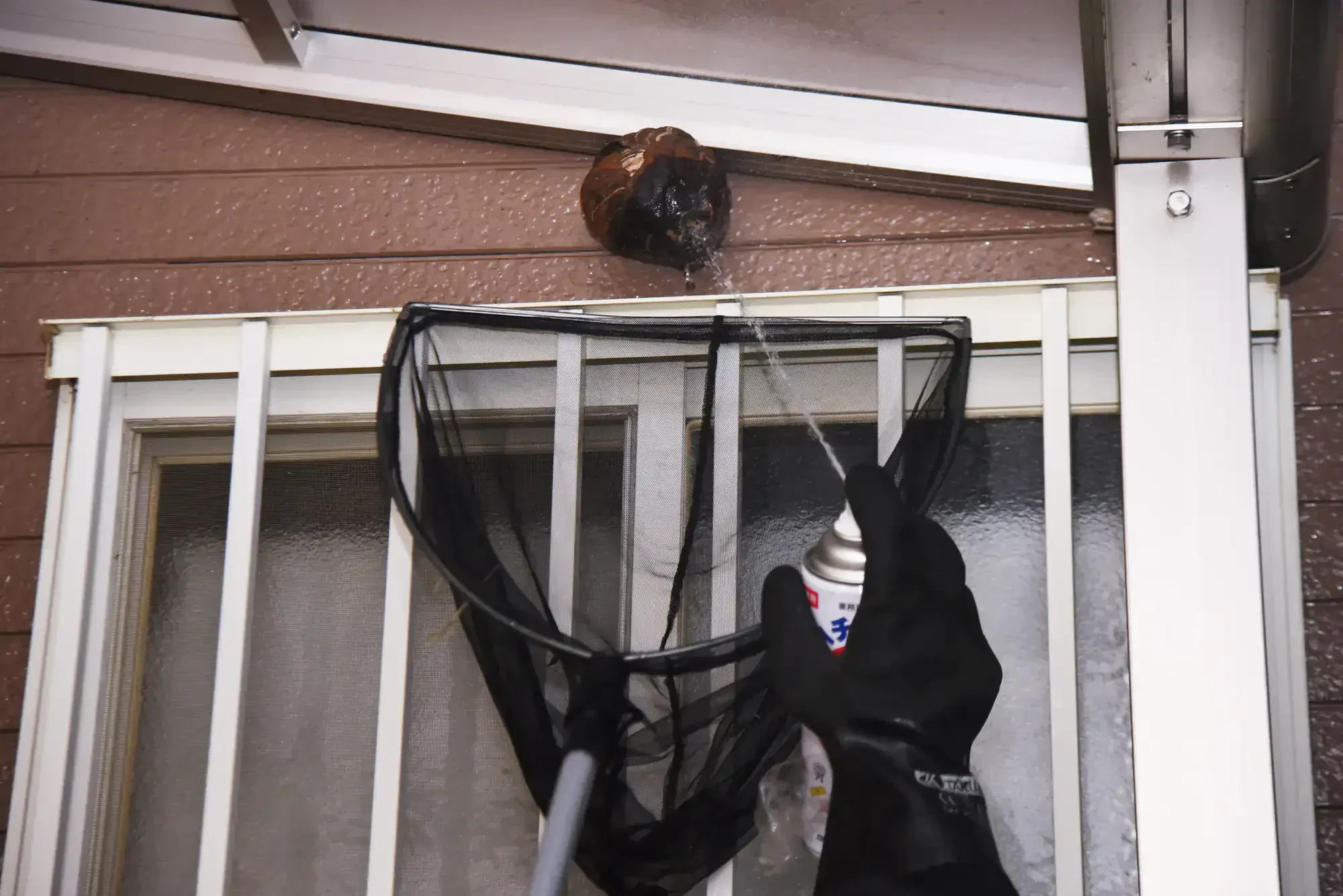
We locate the entire nest structure first. That includes ground colonies that extend several feet underground and wall nests hidden behind your siding where you can’t see the real scope of the problem.
Treatment uses professional materials that penetrate completely through nest structures. Yellow jacket ground colonies and bald-faced hornet aerial nests require different approaches, equipment, and safety protocols that most homeowners don’t have access to.
After eliminating the colony, we remove nest materials and treat surrounding areas to prevent reestablishment. You get a detailed explanation of what we found, what we eliminated, and specific steps to avoid attracting new colonies to the same locations.
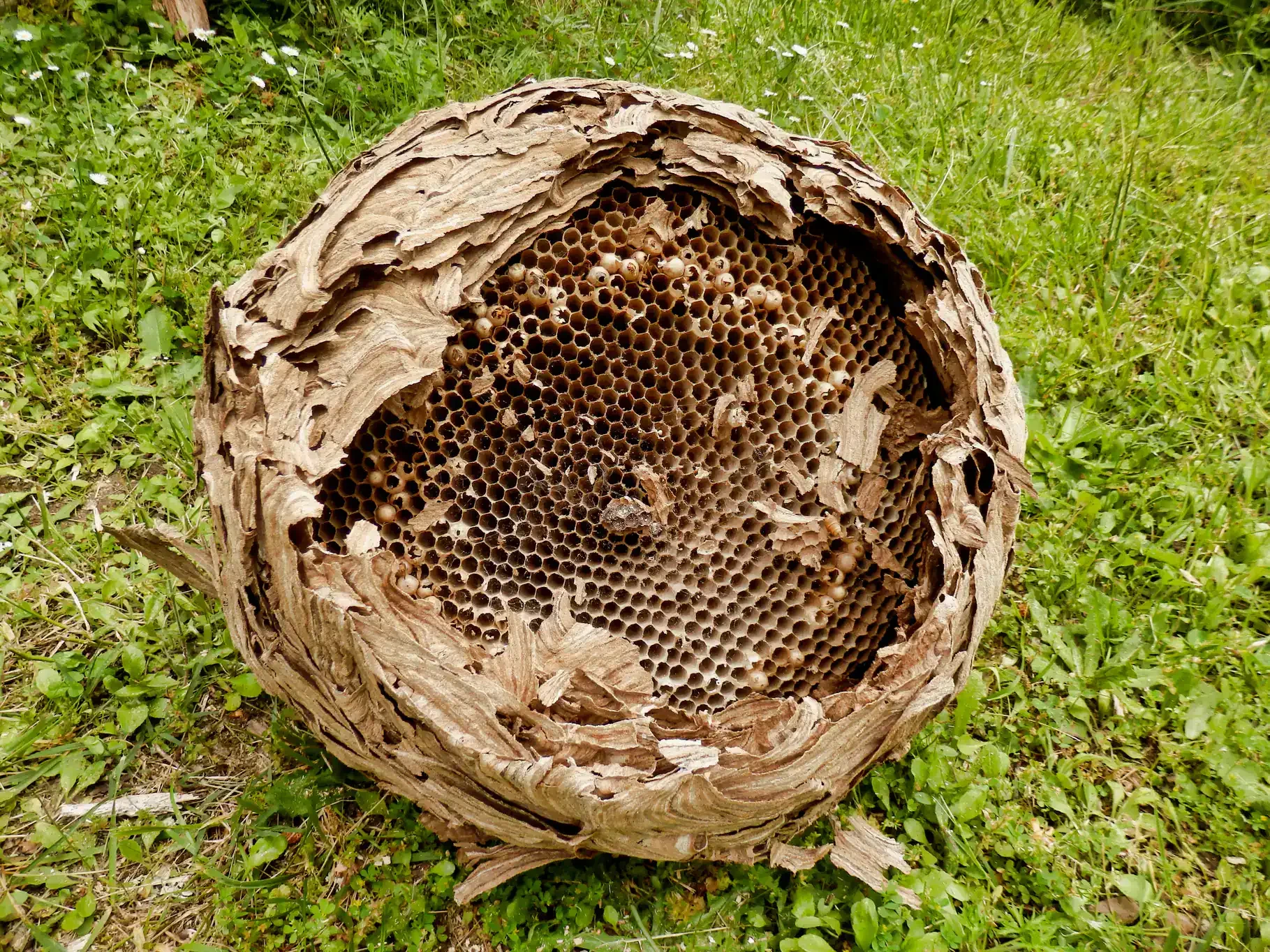
Ready to get started?
Fenton’s August and September bring wasp colonies at their most dangerous. Nests that started small in spring now house up to 5,000 aggressive wasps competing for dwindling food sources around Lake Fenton’s residential areas.
Ground-nesting yellow jackets build in the wooded lots common throughout Genesee County. These underground colonies often go unnoticed until someone mowing or gardening gets too close. One wrong step triggers mass attacks from hundreds of wasps defending their territory.
Emergency response is available for dangerous situations. Bald-faced hornet nests near walkways, yellow jacket colonies under decks where kids play, or wasps that have found their way inside wall voids require immediate professional attention to prevent serious injuries.
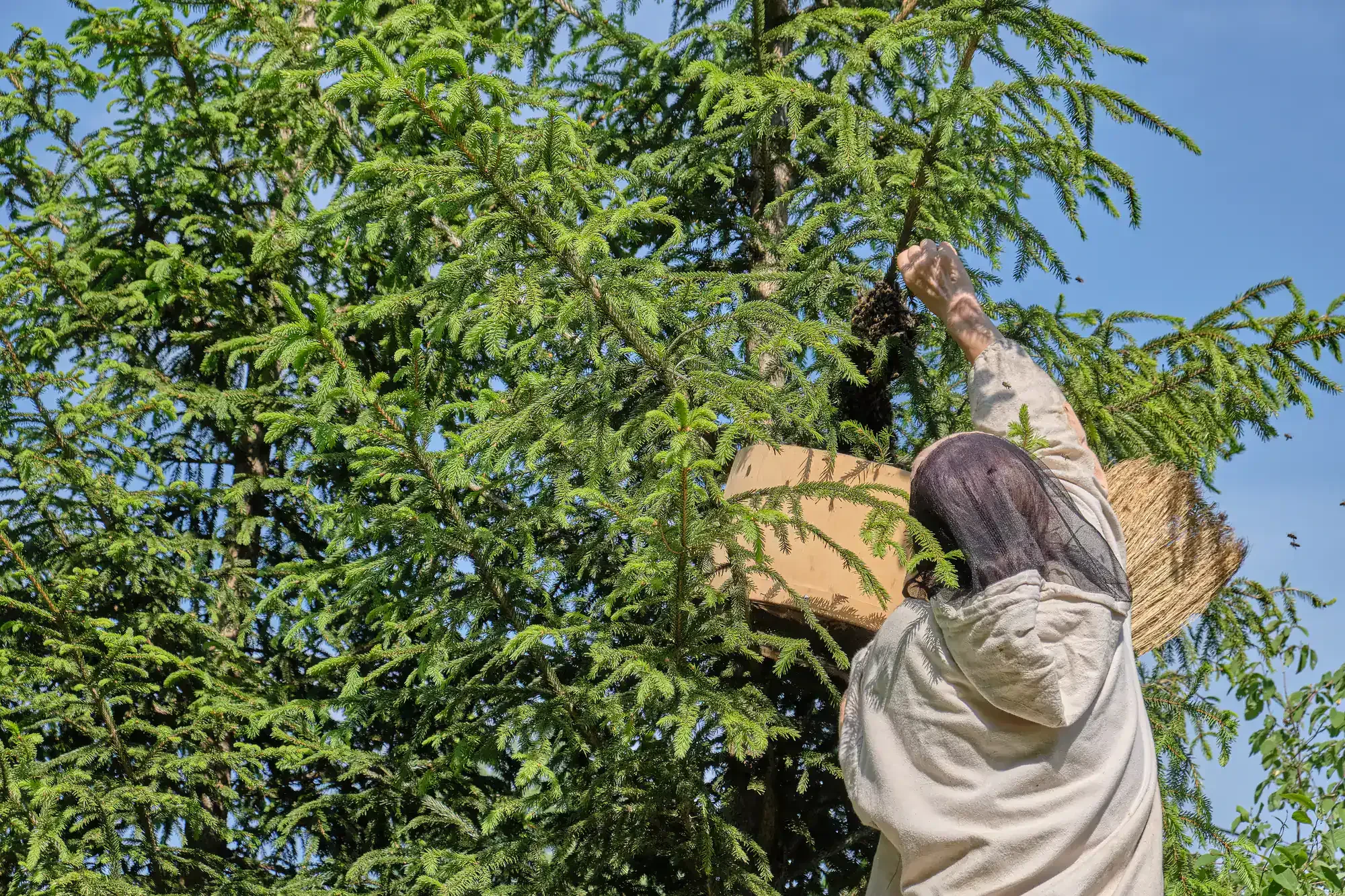
DIY wasp removal in Michigan can land you in the hospital. Yellow jackets sting multiple times and release chemicals that signal other wasps to attack. A single ground nest can house thousands of wasps that swarm when threatened.
Store sprays don’t penetrate deep enough to eliminate entire colonies. Partial treatment makes surviving wasps more aggressive and likely to relocate within your property rather than leave entirely.
Professional removal requires protective suits, specialized equipment, and understanding Michigan wasp behavior during peak aggression periods. We’ve seen too many homeowners injured attempting removal with inadequate protection and ineffective methods.
Call immediately if you discover nests near high-traffic areas like doorways, play areas, or outdoor dining spaces. Don’t wait for the problem to “resolve itself” – Michigan wasp colonies grow larger and more dangerous through September.
Early morning or evening treatment works best when most colony members are present. But emergency situations require immediate response regardless of timing, especially for aggressive species like bald-faced hornets.
Peak season runs August through September when colonies reach maximum size. Waiting until fall means dealing with larger, more defensive populations that pose greater risks to your family and require more complex removal procedures.
Eastern yellow jackets build ground nests in Fenton’s wooded residential areas, often in abandoned rodent burrows. German yellow jackets prefer wall voids and attic spaces in homes. Both species are extremely aggressive during late summer.
Bald-faced hornets construct large paper nests in trees and are Michigan’s most dangerous stinging insect. They attack with minimal provocation and can sting repeatedly. Paper wasps build smaller nests under eaves but become territorial when defending their colonies.
Each species requires specific treatment approaches. Ground nests need different equipment and techniques than aerial colonies. Professional identification prevents using wrong methods that increase danger or fail to eliminate the problem completely.
Professional wasp nest removal in Fenton typically costs $100-350 depending on nest size, location accessibility, and species involved. Ground colonies and wall void nests cost more due to complexity and safety requirements.
Emergency service during peak season may include additional charges for immediate response. High nests requiring specialized equipment or multiple colonies on the same property affect final pricing.
We provide upfront pricing with no surprise charges. Price matching is available for comparable local services. Most customers find professional removal costs far less than potential medical bills or property damage from failed DIY attempts.
Individual nests aren’t reused, but successful nesting sites attract new queens each spring. Michigan’s cycle means worker wasps die by November, leaving only fertilized queens to overwinter and start fresh colonies.
Properties that provided good nesting conditions remain attractive due to shelter, food access, and weather protection. Previous nest sites often see new activity unless conditions change.
Professional treatment includes residual applications that make former nest sites less appealing to new queens. We also recommend property modifications that reduce attractiveness to colony-founding queens seeking spring nesting locations.
Move away quickly and steadily without swatting. Wasps release alarm pheromones when threatened that attract more colony members to attack. Running in a straight line away from the nest area is your safest option.
Get indoors immediately and stay away from the area for at least 24 hours. Disturbed colonies remain agitated and defensive long after the initial incident, especially during Michigan’s peak season when colonies are largest.
Never attempt to treat recently disturbed nests yourself. Agitated wasps are exponentially more dangerous and likely to attack in large numbers. Contact us immediately for emergency removal of disturbed colonies.